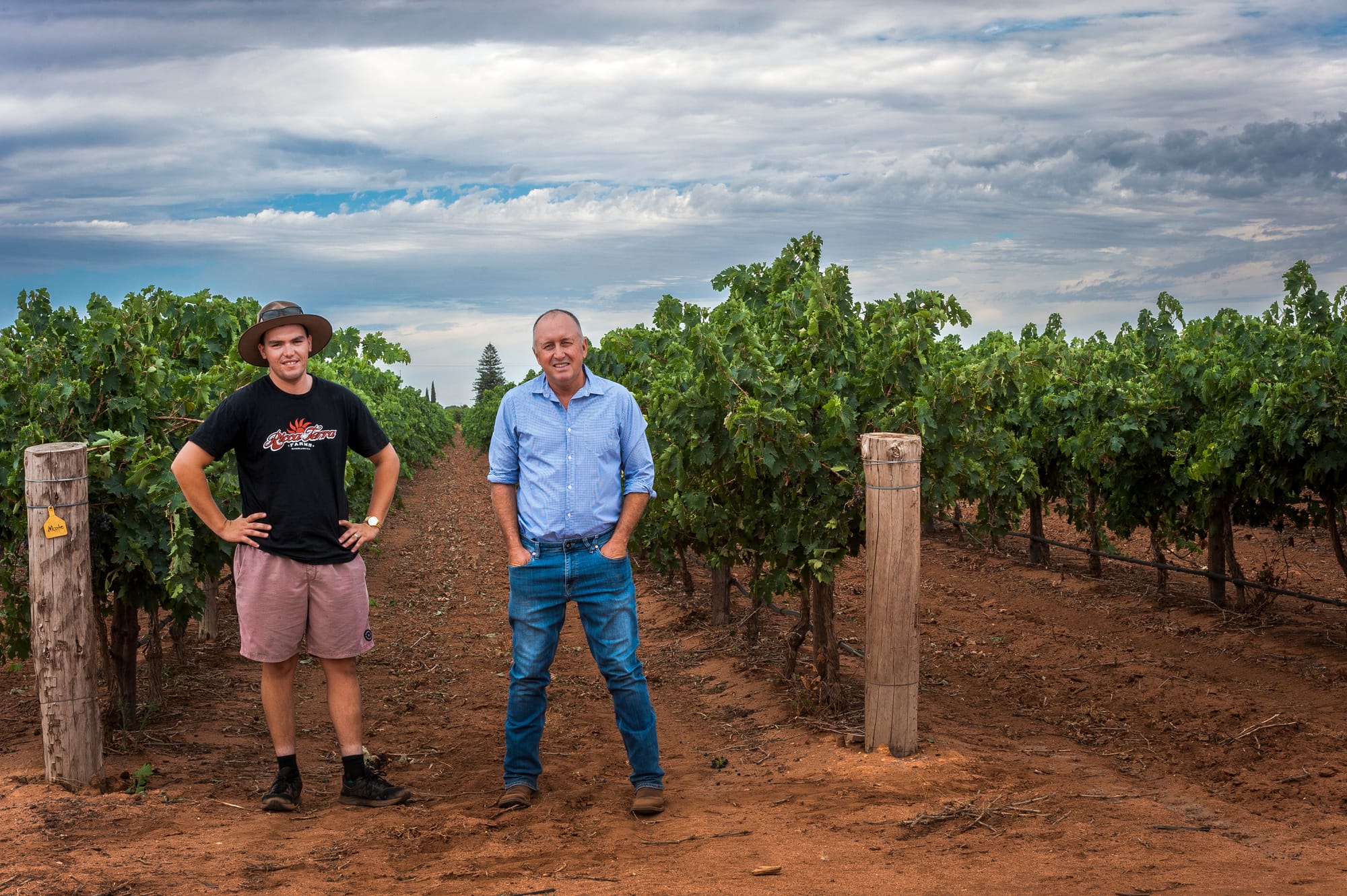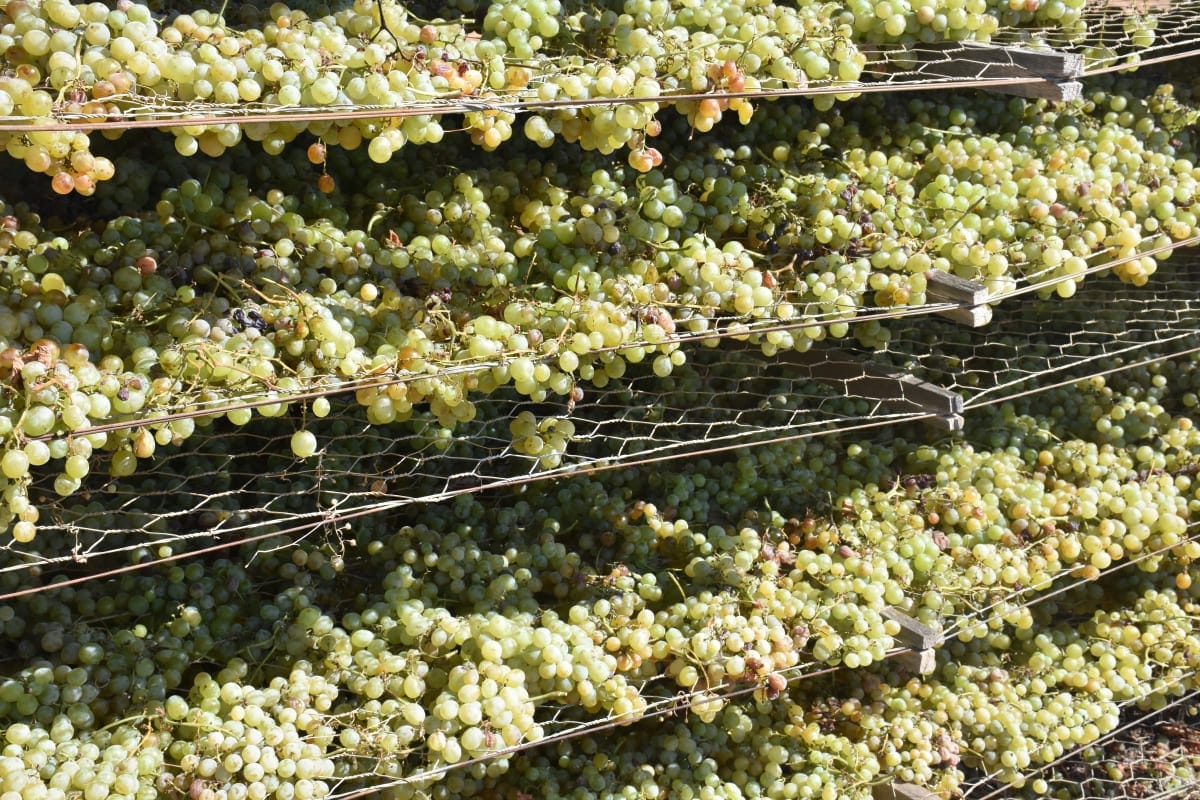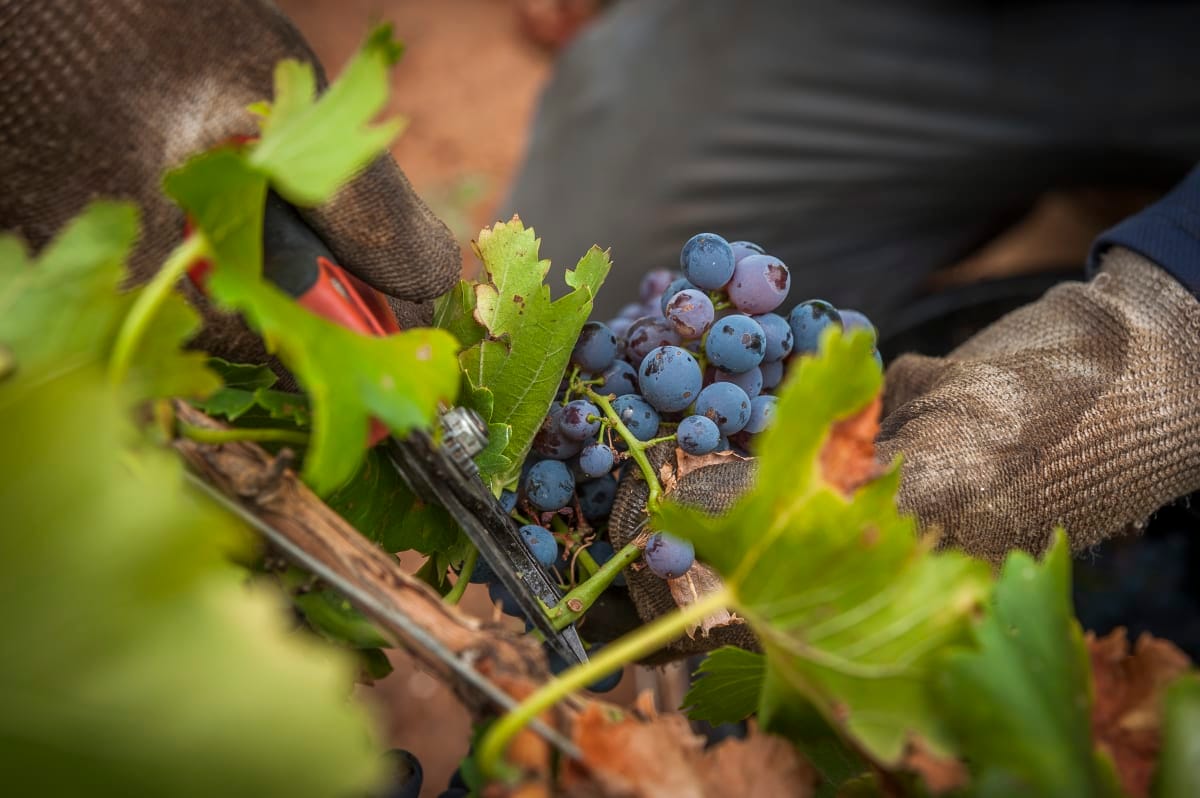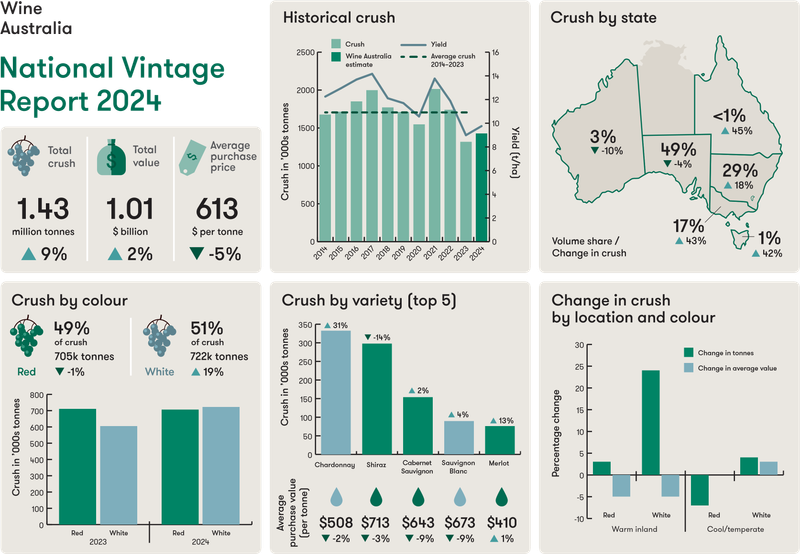Ashley’s glass-half-full approach to drying racks
WINEGRAPE drying racks left behind at a vineyard in the Riverland will result in a new wine added to a special range for Ricca Terra winemaker Ashley Ratcliff. Despite not looking to purchase a vineyard at the time, when Ashley and his wife Holly...

WINEGRAPE drying racks left behind at a vineyard in the Riverland will result in a new wine added to a special range for Ricca Terra winemaker Ashley Ratcliff.
Despite not looking to purchase a vineyard at the time, when Ashley and his wife Holly were told of the century-old soldier settler block on Jury Road, Berri, in 2021, it was hard to pass up.
Ownership of the land changed multiple times from 1922 until 1939, when Carl Pech purchased the property. After 82 years of Pech ownership, Ruth and Robert Pech sold the property to the Ratcliffs.
“There were a couple of really old shiraz vines there, and some riesling – which is pretty rare in the Riverland at the moment – plus it had a house and shed,” Ashley explained.
“The property had two drying racks on it – which hadn’t been used for 35 years – and one was in a state of disrepair, but the other was in reasonably good condition. So, we kept the second one, did it up and essentially put a roof back on it.”
With a patch of “really old” gordo – also known as zibibbo – grapes next to the drying racks, Ashley decided he would try his hand at making a straw wine.
“It’s a wine that is traditionally made on straw,” he explained.
“The picked grapes are put on racks, dried and then taken to the winery.
“You might make a dessert wine out of it… That’s the kind of style that you make.
“I just thought, why not have a crack at it and do it, because I don’t think anybody else is doing it in this manner in the country.”

and sold as part of the Ricca Terra Soldiers’ Land range. PHOTO: Elyse Armanini
According to Ashley, the benefits of rack drying grapes is seen in the final product, with drying reducing the fruit moisture content, concentrating the flavours and sugars, and producing a “more intense” wine.
The straw wine will be part of Ricca Terra’s Soldiers’ Land range, which celebrates, and aims to preserve, vineyards planted by returned soldiers in the Riverland.
“If you’ve got an old vineyard, it’s treasured because it’s history,” Ashley said.
“But in the Riverland a lot of them are just pulled out because no one puts value in them. I thought, ‘There are a lot of stories behind these vineyards that are planted by people who have come and settled the region’.
Soldiers’ Land is a range that preserves the past, because we want to preserve these old vineyards, but it’s also for the future.
“We donate part of the profits back to RSL SA. It’s not tens of thousands of dollars – well, it will be if we sell more wine – but we donate each year and this year we’re supporting the Barossa RSL.”
The wines – two shirazzes, a grenache and a riesling – have scored well in recent judging, plus the June/July issue of Halliday magazine will feature the Soldiers’ Land Riesling in the 100 New Tasting Notes section.
Ricca Terra’s vintage looked to be shaping up well in early April, with just three weeks to go in a longer-than-usual vintage for Ashley and his team.
“It’s been a long one, we were picking every day, but we’re happy with the way things look,” Ashley said.
“We’ve had reasonably solid crops, which is good, and the quality is exceptional, because of the weather.
“Tongue in cheek, I’ve said to my friends down in the Barossa (the Riverland is) the new cool-climate region of Australia, because they can’t ripen their fruit and have had problems with disease.
“We’ve had an absolutely amazing growing season this year. Heat does tend to burn off flavour for some varieties, like riesling or sauvignon blanc, but we haven’t had that this year. We’ve got wines in tank that look like cool-climate.”

Since purchasing their first property in Barmera in 2003, the Ricca Terra business model over the two decades has “always been about diversification” for Ashley and Holly.
“We have 50 different winemakers and about 45 to 50 different grape varieties,” Ashley said.
“We have our own logistics and refrigerated trucks. We truck fruit from here to Queensland and all through NSW, so we spend a lot of time on the road delivering fruit.
“Our business is always very vertically and horizontally integrated, and that generally allows us to react. If someone up in Brisbane wants 5 or 10 tonnes of fruit, we can deliver it door-to-door because the current freighting business doesn’t do that very efficiently.”
Ricca Terra has fared well in the recent challenges faced by the wine industry, with many winegrape growers experiencing uncertainty and having to make decisions on removing vines from properties or letting fruit go to waste.
“We’re very fortunate with our commercial stuff – our shiraz, chardonnay, and cabernet – because we supply to major wine companies in Yalumba and Treasury, and they have been exceptional in regards to dealing with them,” Ashley said.
They understand the plight of the grower, because their businesses don’t run without growers.
“Everybody takes a snapshot of what the environment looks like now, where everything is doom and gloom, but you’ve only got to cast your eye back to four years ago when the industry was booming and then before that it was bust.
“I always look at this sort of period as a way to ensure that our business continues, and it’s a good time to actually strengthen the business.
“I’ve been around. I’m 52 and I’ve worked for corporate companies, and you could write the best business plan in the world but very rarely do they come to fruition.
“I do sit back sometimes and pinch myself. You have those moments sometimes where it’s like, ‘How the hell did this happen?’
“But it happens through hard work and when you actually believe in the region and in what you’re doing.”
With three children showing interest in different sides of the Ricca Terra business, Ashley and Holly’s vision could grow with the next generation of winemakers.
“I hope Ricca Terra is around for a lot longer, because the next generation might have a bit of a crack,” Ashley said.
“One of the challenges for the wine industry, and in particular the Riverland, is you need to continue to reinvent.
“The only way to reinvent yourself is by bringing new people on board who come along with new ideas.”





